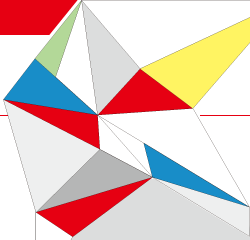| 單元內容 |
USING QUOTATIONS
Dr. Marguerite Connor
TWO TYPES OF DIRECT QUOTATION:
A. Separated
1. Comma or colon and quotation marks separate citation and quotation
2. The first letter of the quotation is capitalized
3. You are distinguishing between your ideas and those of your source
For example: St. Paul declared, "It is better to marry than to burn." [use the comma to separate when the quote grammatically completes your sentence]
In his first epistle to the Corinthians, St. Paul commented on lust: "It is better to marry than to burn." [use a colon if the quotation follows a clause that could stand alone as a complete sentence]
B. Integrated
1. No punctuation (except for quotation marks) separates citation and quotation
2. The first letter of the quotation is not capitalized
3. You are integrating your ideas with those of your source
For example: St.Paul declared that "it is better to marry than to burn."
Thoreau warned his readers to "beware of all enterprises that require new clothes."
The effect is very smooth, and the reader's attention is not distracted from the flow of sentences.
Often, we use the historical present tense when quoting a variety of different sources from different eras in order to put them on equal terms--even if the author is dead. If their ideas remain 'true' or if their ideas are still verv important, that's another reason to use the historical present tense.
For example, When Shelley acknowledges that poets are creators of language and music and art, he also asserts that they have a civic role: They are the institutors of laws, and the founders of civil society, and the inventors of the arts of life. Writing one hundred years later, Benedetto Croce affirms Shelley's insistence upon the social and spiritual responsibilities of the poet. According to Croce, Shelley sees poetry "as the eternal source of all intellectual, moral, and civil vitality."
|
|
